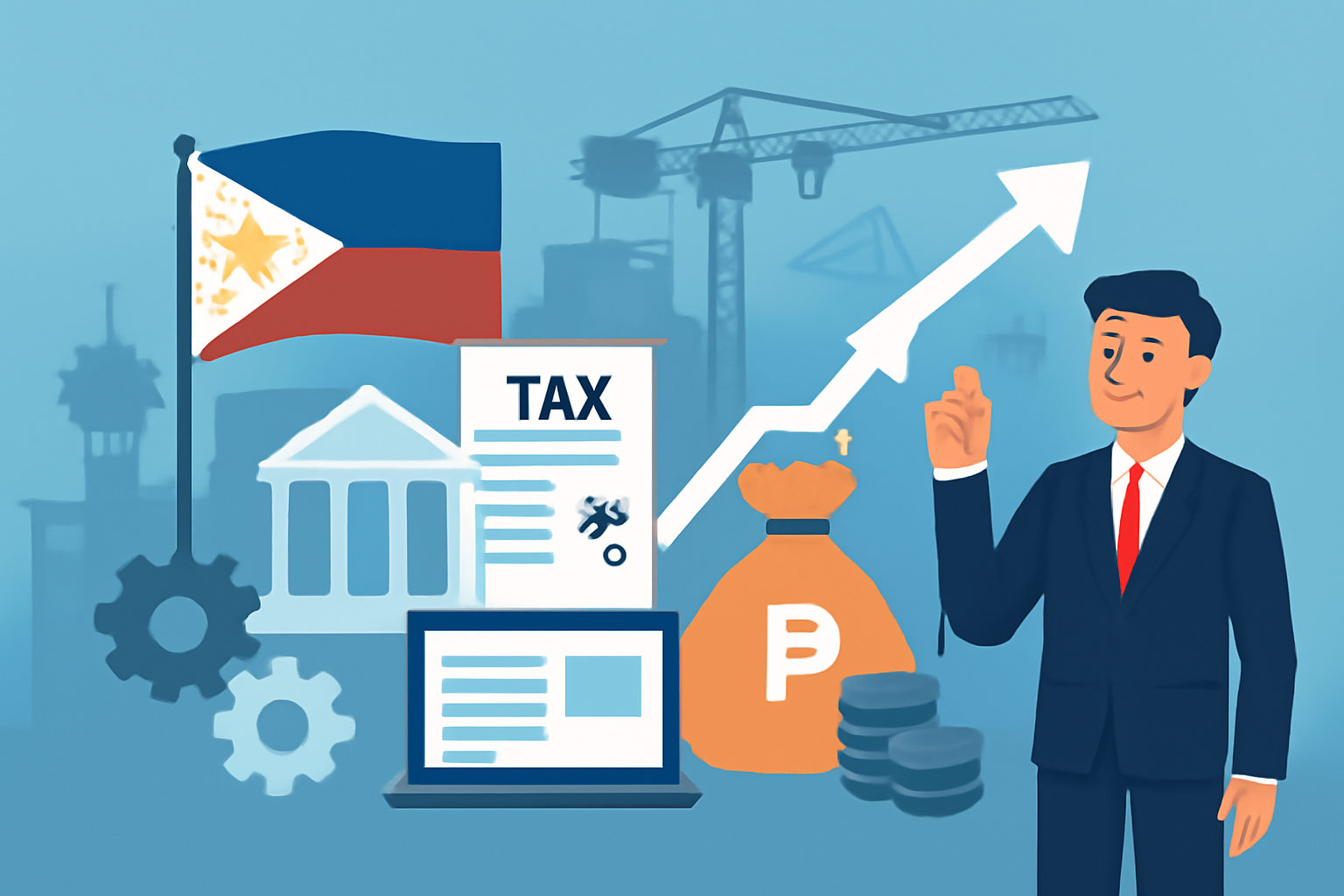The government of the Philippines has recognized the importance of creating a supportive environment for business growth, as evidenced by the wide range of policies and initiatives designed to foster economic development. These policies cover various sectors, from tax incentives to infrastructure upgrades, and have had a significant impact on the country’s business climate.
Tax Reforms and Investment Incentives
To promote business growth, the Philippine government has enacted various tax reforms, including the CREATE Act, which aims to reduce the corporate tax rate and offer incentives to businesses in strategic sectors. These changes are designed to make the Philippines more attractive to investors and ensure that businesses can thrive in a competitive global marketplace.
In addition to tax reductions, businesses operating in special economic zones can benefit from various tax incentives, such as income tax holidays and exemptions from duties and taxes on imported materials. The Philippine Economic Zone Authority (PEZA) administers these incentives, ensuring that businesses that choose to set up operations in these zones can enjoy long-term financial benefits.
Reducing Bureaucracy and Improving Efficiency
Another important policy aimed at fostering business development is the Ease of Doing Business Law. This law focuses on reducing bureaucracy, streamlining the process for obtaining business permits and licenses, and creating a more efficient regulatory environment. The goal is to make it easier and faster for entrepreneurs to start their businesses and for existing businesses to expand.
To further improve the business climate, the government has adopted online platforms that allow businesses to apply for permits, register their companies, and access other necessary services remotely. These digital initiatives have made the entire process more efficient, cutting down on the time and effort required to start and run a business.
Investments in Infrastructure to Boost Business Operations
Infrastructure development is another key area where the Philippine government has made significant strides. The “Build, Build, Build” program focuses on building and upgrading the country’s infrastructure, including roads, bridges, and airports. These improvements make it easier for businesses to transport goods, reduce logistics costs, and expand their operations both domestically and internationally.
In addition to physical infrastructure, the government has invested heavily in digital infrastructure to ensure that businesses can operate effectively in the online space. The expansion of broadband services and internet connectivity is particularly important for businesses that rely on e-commerce or remote work.
Empowering Small and Medium Enterprises
Small and medium-sized enterprises (SMEs) are essential to the Philippine economy, and the government has implemented a number of programs to support their growth. The Go Negosyo Act, which provides business advisory services and financial assistance, has been instrumental in helping entrepreneurs launch and grow their businesses. These initiatives help SMEs overcome challenges related to financing, market access, and business knowledge.
Additionally, the government has facilitated partnerships between financial institutions and microfinance organizations to ensure that SMEs have access to the capital they need to thrive. With this support, SMEs can contribute to job creation, innovation, and economic growth.
Conclusion
Through a comprehensive range of policies and initiatives, the Philippine government has made significant progress in supporting business development. From tax incentives and regulatory reforms to infrastructure improvements and SME support, these policies create an environment where businesses can succeed. As a result, the Philippines remains an attractive destination for investment and entrepreneurship, driving long-term economic growth.





